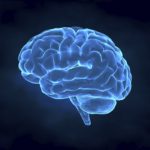According to new research conducted by the University of Birmingham, disrupted sleep during infancy might be correlated with behavioral problems, like anxiety and depression, later in the child’s life.
The study, released in BMJ Paediatrics Open, uncovered these results by examining more than 1,600 parents during pregnancy and 926 child participants recruited at two years of age.
“In this study we examined the associations between sleep problems in early childhood and internalising, externalising and dysregulation symptoms in toddlers,” the study’s co-authors stated in the findings.
“Parent-reported sleep duration, sleep-onset latency, night wakings, proportion of daytime sleep and bedtime at 3, 8, 18 and 24 months were assessed with two sleep questionnaires. Externalising, internalising and dysregulation problems at 24 months were examined with the Brief Infant-Toddler Social and Emotional Assessment.”
Based on their assessments, researchers determined that more instances of sleep disruption at 3 months of age was correlated with certain adversities in infants, including emotional and behavioral problems.
“Shorter sleep duration at 8, 18 and 24 months and longer sleep-onset latency and more night wakings at all time points, in addition to earlier bedtime at 8 months and greater proportion of daytime sleep at 24 months, were related to dysregulation,” the study determined.
“Finally, more night wakings at 3 and 24 months, and longer sleep-onset latency at 24 months were associated with externalising problems.”
From these findings, researchers were able to solidly establish a link between low sleep quality among infants and the development of emotional or behavioral traits. Those results build on previous research focusing on sleep problems in infancy and its association with socio-emotional development.
“This study contributes to the recent research on the role of early sleep problems in socio-emotional development, suggesting that shorter sleep duration, longer sleep-onset latency and higher waking frequency are related to internalising, externalising and dysregulation symptoms in toddlers, and thus it might be beneficial to provide early interventions for those infants reporting these sleep problems,” the findings concluded.


